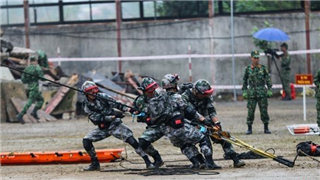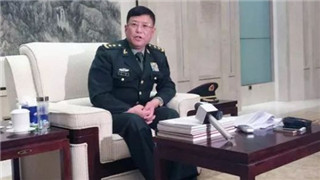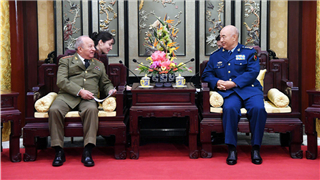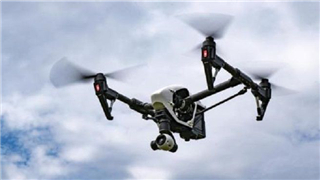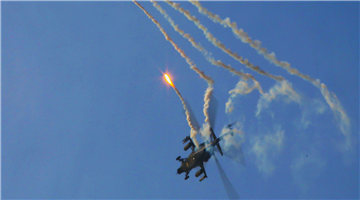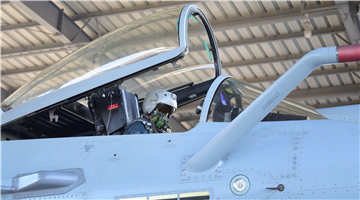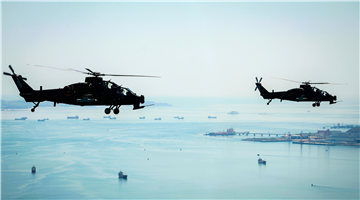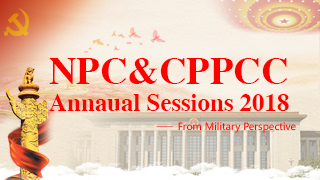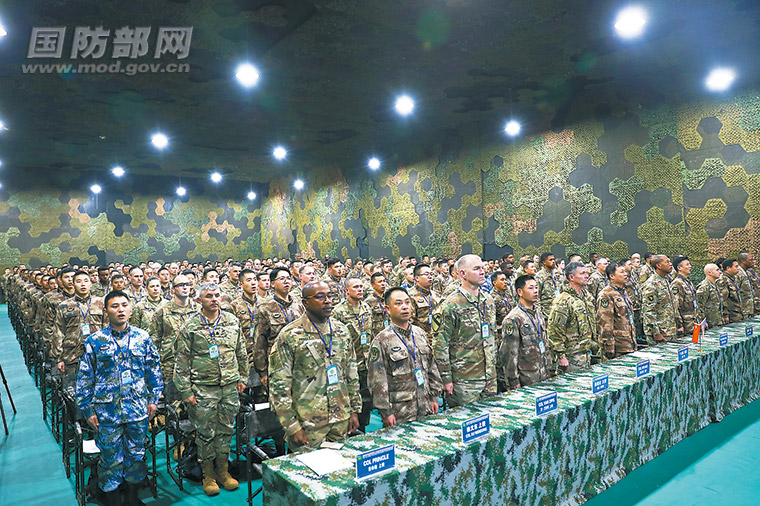
By Zhang Wenwen and Tong Zujing
US-China Disaster Management Exchange 2018 involving an engineering brigade of the army under the PLA Eastern Theater Command concluded on November 17, 2018. The joint exercise not only improved the ability of the two militaries to carry out joint operations in the field of international rescue and joint response to disasters, but also enhanced mutual understanding and trust and injected positive energy into the development of China-US relations.
The China-US relationship is one of the most important bilateral relations in the world today. An important aspect of bilateral ties is that the two militaries have broad common interests in safeguarding world peace and security, while shouldering important responsibilities.
At present, with an increase in international security challenges, cooperation between the two militaries is also expanding in scope. Against a background of China-US trade friction, the two militaries have kept strengthening communication, enhancing mutual trust, deepening cooperation, and controlling risks, making positive contributions to the healthy and stable development of China-US relations, while highlighting the stabilizing role of a bilateral military partnership for such relations.
Mutual trust in terms of military security functions as the basis for China-US strategic mutual trust. The militaries of China and the US are committed to strengthening high-level communication to prevent misunderstanding and misjudgment, so that cooperation between the two militaries remains exemplary.
In June this year, the US Defense Secretary James Mattis visited China for the first time. In October, Chinese Defense Minister Wei Fenghe met with Mattis during the fifth ASEAN Defense Ministers’ Meeting Plus (ADMM-Plus) in Singapore. In November, Wei Fenghe paid an official visit to the United States and attended the second round of the US-China Diplomatic and Security Dialogue in Washington, DC.
The two defense ministers met three times within five months, indicating that both sides are committed to maintaining strategic communication, striving toward maintaining the stability of bilateral military relations, and adding positive energy to China-US relations.
Meanwhile, the two militaries continue to strengthen institutional dialogue and pragmatic cooperation in terms of inter-university exchanges and humanitarian relief and disaster reduction, and to take practical steps to promote military exchanges between the two sides.
In the present situation where certain negative factors are challenging China-US relations, the two militaries are resolute on maintaining exchanges at all levels, conducting dialogue and negotiation through the China-US Defense Departments’ consultations on defense, the Asia-Pacific Security Dialogue and other mechanisms, so as to continuously deepen the construction of two confidence-building mechanisms, namely “the confidence-building measure (CBM) mechanism for notification of major military activities” and “the rules of behavior for safety of air and maritime encounters”.
This past September, the Chinese and US militaries co-hosted the 2018 Asia-Pacific Military Health Exchange (APMHE) in Xi’an, capital of northwest China’s Shaanxi Province, providing an academic platform for military personnel in the Asia-Pacific region to focus on disaster response, medical readiness, and military medical care, and promoting exchange and cooperation in the fields of medical services, clinical research, education and training, and disease prevention.
The just-concluded US-China Disaster Management Exchange 2018 has further promoted pragmatic cooperation and institutional exchanges between the two sides, which is conducive to the enhancement of mutual trust and to reducing misjudgment between the two militaries.
Just as the ancient Chinese saying upholds, “Work at it hard enough, you can grind an iron rod into a needle.” The two militaries need to continuously enhance mutual trust and deepen cooperation, properly address differences and control risks, jointly promote the development of bilateral military relations, and work hard to ensure relations between the two militaries advance as a stabilizing factor for China-US ties.
Disclaimer: The authors are Zhang Wenwen and Tong Zujing. The article was published on the PLA Daily on Nov. 20. It is translated from Chinese into English and edited by China Military online.
